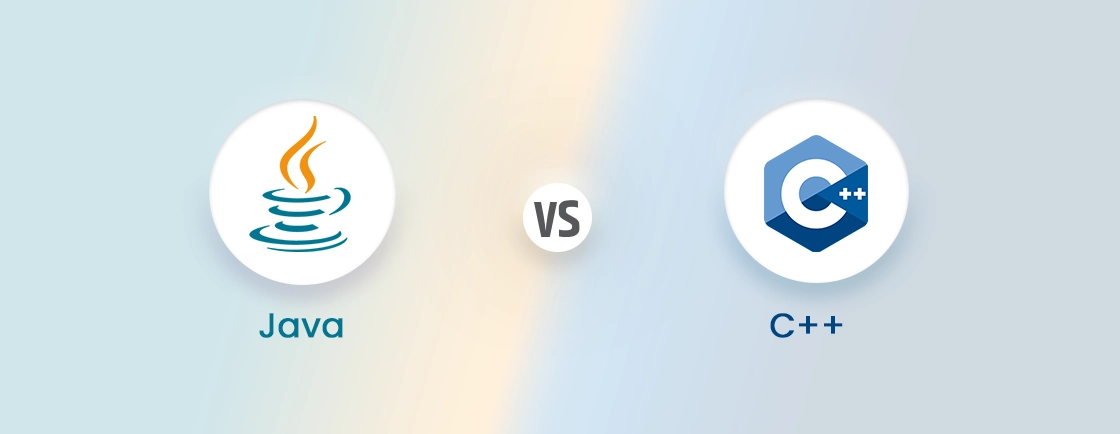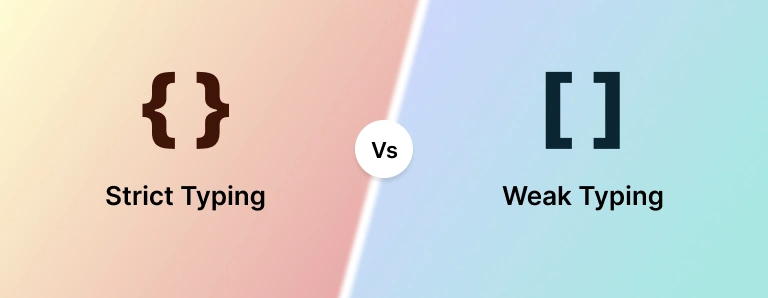Table of Contents
Trying to create an iOS application? Then you have two ways to go–native app development or cross-platform app development. For the former, one of the top iOS development languages is Swift. And for cross-platform development, a top option is React Native.
Swift delivers top-tier performance, tight hardware integration, and full access to iOS features. That is ideal for high-performance apps. React Native, on the contrary, lets you write once and deploy on both iOS and Android. It saves time and cost for businesses targeting multiple platforms. But which one is right for you?
Well, this blog will help you compare React Native vs Swift across various key factors. Plus, I’ll give you an idea on how the mobile app experts choose between these platforms. So let’s get straight into it.
React Native vs Swift
| Factor | React Native | Swift |
|---|---|---|
| Platform Support | iOS & Android (single codebase) | iOS (and macOS, watchOS) |
| Performance | Near-native (slower for heavy animations/computations) | Optimal (fully native, faster execution) |
| Development Speed | Faster (reusable components, hot reload) | Slower (platform-specific coding) |
| Learning Curve | Easier (JavaScript/React knowledge) | Steeper (Swift/Apple frameworks) |
| UI/UX | Good (customizable but may need platform tweaks) | Best (seamless Apple design integration) |
| Community & Libraries | Large (JavaScript ecosystem) | Strong (Apple-backed, SwiftUI support) |
| Cost Efficiency | High (single team for both platforms) | Lower (requires separate Android devs) |
| Best for | MVP, startups, cross-platform apps | High-performance, iOS-exclusive apps |
React Native saves time and cost for cross-platform apps, while Swift delivers superior performance and UX for iOS-first projects.
What is React Native?
React Native is an open-source framework developed by Meta (Facebook). It helps build cross-platform mobile applications using JavaScript and React. With it, developers can write code once and deploy it on both iOS and Android. It reduces development time and cost.
How Does It Work?
Instead of rendering web components, React Native translates JSX into native UI elements. That ensures smoother performance than hybrid frameworks like Cordova. It communicates with native threads via a bridge. Complex animations or computations may still lag behind fully native apps.
Key Features of React Native
- Cross-platform Development: Single codebase for iOS & Android.
- Hot Reloading: Instant preview of changes without full rebuilds.
- Native-like Performance: Bridges JavaScript with native components.
- Large Ecosystem: Leverages npm, React libraries, and third-party plugins.
- Community & Backing: Strong support from Meta and open-source contributors.
Pros of React Native
- Cross-platform (iOS & Android from one codebase)
- Faster development (Hot Reload, reusable components)
- Cost-effective (Single team for both platforms)
- Strong community & JavaScript ecosystem
Cons of React Native
- Performance limitations (Slower for heavy animations/computations)
- Native dependencies (Some features require native modules)
- Debugging complexity (Bridge-related issues)
- UI inconsistencies (May need platform-specific tweaks)
Popular Apps Built with React Native
- Facebook (parts of the mobile app)
- Shopify
- Tesla
React Native is ideal for businesses prioritizing cost-effective, scalable mobile solutions. All in all, if you want to create an app for both Android and iOS, consulting with a React Native development company would be beneficial.
What is Swift?
Swift is a powerful, modern programming language developed by Apple in 2014 as a successor to Objective-C. Designed for performance and safety, it is the primary language for building native iOS, macOS, watchOS, and tvOS applications.
How Does It Work?
Swift compiles directly to native machine code. It eliminates the performance overhead seen in interpreted or bridge-based frameworks (like React Native). Swift supports protocol-oriented programming and memory management via ARC (Automatic Reference Counting). Plus, there is interoperability with Objective-C.
Key Features of Swift
- Native Performance: Optimized for Apple hardware, offering near-metal speed.
- Safe & Expressive Syntax: Reduces crashes with features like optionals and type inference.
- Seamless Apple Integration: Full access to iOS frameworks (SwiftUI, ARKit, CoreML).
- Growing Ecosystem: Backed by Apple, with strong developer tools (Xcode, Swift Playgrounds).
- Ahead-of-Time (AOT) Compilation: Converts code directly to machine language for faster execution.
Pros of Swift
- Best performance (Native, no bridge overhead)
- Full Apple ecosystem access (SwiftUI, ARKit, CoreML)
- Safer code (optionals, type safety)
- Better UX/UI (Seamless iOS integration)
Cons of Swift
- iOS-only (Requires separate Android development)
- Steeper learning curve (Swift + Apple frameworks)
- Slower development cycle (No cross-platform reuse)
- Apple dependency (Updates tied to Apple’s roadmap)
Popular Apps Built With Swift
- Top iOS apps
- Airbnb
- Lyft
Swift is ideal for apps demanding high performance features, like games, AR/VR, real-time processing, etc.
Difference Between React Native and Swift
Both React Native and Swift are outstanding for mobile app development. Choosing between them depends on your project needs. But you can get a fair idea about which is better through this comparison.
Learning Curve & Ease of Use
React Native leverages JavaScript (or TypeScript) and React, making it easier for web developers to transition into mobile development. Its component-based architecture and extensive documentation lower the entry barrier. However, developers may still need to learn platform-specific nuances for optimal performance.
Swift, while modern and expressive, has a steeper learning curve, especially for those unfamiliar with Apple’s ecosystem. Developers must understand iOS frameworks (UIKit/SwiftUI), memory management (ARC), and Xcode. However, once mastered, Swift offers more precise control over native features.
Verdict
React Native wins for ease of adoption, especially for JavaScript developers. Swift requires more upfront investment but pays off in long-term iOS expertise.
Performance
React Native uses a JavaScript bridge to communicate with native modules, introducing slight overhead. While suitable for most apps, heavy computations, complex animations, or real-time processing may suffer performance bottlenecks.
Swift compiles directly to native machine code, ensuring maximum performance. It excels in CPU-intensive tasks, smooth animations, and low-latency applications (e.g., gaming, AR/VR).
Verdict
Swift is the clear winner for performance-critical apps. React Native is good enough for most business apps but lags in high-end use cases.
Development Speed
React Native enables rapid development with features like Hot Reload, reusable components, and a single codebase for iOS and Android. This drastically reduces time-to-market, making it ideal for MVPs and startups.
Swift requires separate coding for each platform, increasing development time. While SwiftUI has improved UI development speed, it still lacks React Native’s cross-platform efficiency.
Verdict
React Native is faster for cross-platform development. Swift is slower but more polished for iOS-only apps.
UI/UX & Native Feel
React Native renders near-native UI but may require platform-specific adjustments for a seamless experience. Some components (e.g., navigation, gestures) behave differently across iOS and Android.
Swift delivers a truly native look and feel, with full access to iOS HIG design guidelines and smooth animations. Apps built with SwiftUI/UIKit feel more integrated with the OS.
Verdict
Swift provides the best native UX. React Native is good but may need extra effort for a pixel-perfect UI.
Development Cost
React Native reduces costs significantly—one team can build for both platforms, and maintenance is simpler. However, debugging and optimizing performance may add hidden costs.
Swift requires separate iOS and Android teams, increasing expenses. However, long-term maintenance is often cheaper due to better stability and fewer cross-platform quirks.
Verdict
When it comes to mobile app development costs, React Native is a clear winner. It is more cost-effective for startups and cross-platform projects. Swift is pricier but justified for premium iOS apps.
Support
React Native has a vast open-source community, frequent updates, and strong backing from Meta. However, some third-party libraries may be unstable or deprecated.
Swift is backed by Apple, ensuring long-term support, better documentation, and seamless integration with new iOS features. The ecosystem is more stable but less flexible for non-Apple platforms.
Verdict
It’s a tie in terms of support. While Swift has stronger official support, React Native has a broader community.
For most businesses, React Native offers the best balance of speed and cost. But for premium iOS experiences, Swift remains unmatched.
When to Choose React Native and Swift?
React Native and Swift are two of the best mobile app development platforms. But they are both meant for different applications. Here’s how you choose between them:
Choose React Native if:
- You need a cross-platform app quickly.
- Your team knows JavaScript/React.
- Budget is a constraint and MVP speed matters.
Choose Swift if:
- You’re building an iOS-exclusive, high-performance app.
- Your app relies on advanced Apple features (ARKit, CoreML, etc.).
- Long-term scalability and polish are priorities.
Choose between these two platforms based on priorities—speed to market or platform optimization.
So, Which is Better? React Native or Swift?
The choice between React Native and Swift ultimately depends on your project’s goals, team expertise, and long-term vision. Choose React Native if you need a cost-effective, cross-platform solution with faster development cycles. Choose Swift if you’re developing an iOS-exclusive, high-performance app for seamless integration with Apple’s ecosystem.
So, React Native vs Swift? There’s no universal winner—only the right tool for the right job. You can also go for a hybrid approach. That means using React Native for shared logic and Swift for performance-critical features.
Still unsure? Then consult with us, a leading mobile app development company today!
FAQs on React Native vs Swift
Does Apple prefer Swift over React Native?
Yes. Apple designs its ecosystem (Swift, SwiftUI, Xcode) for best iOS performance. But React Native apps are still accepted on the App Store if they follow guidelines.
Does React Native support new iOS features immediately?
No. There’s often a lag (weeks/months) before React Native supports the latest iOS APIs. Swift gets day-one access to new Apple features (e.g., Dynamic Island, Vision Pro).
Does Swift work for Android development?
No, Swift is exclusive to Apple’s ecosystem (iOS, macOS, etc.). For Android, you’d need Kotlin or Java. If cross-platform development is a priority, React Native or Flutter would be better choices.
Which has better debugging tools: React Native or Swift?
Swift has superior debugging tools via Xcode (LLDB, Instruments, and real-time previews with SwiftUI). React Native relies on Chrome DevTools or Flipper, which are powerful but can struggle with native-layer issues.
Is React Native good for complex animations?
Simple animations work fine, but complex 60FPS animations may stutter due to the JavaScript bridge. Swift, with Core Animation and Metal, handles high-performance animations seamlessly.
Which is better for real-time apps (chat, gaming)?
Swift is the clear winner for real-time apps because of its direct hardware access and multithreading capabilities. React Native’s bridge introduces latency, making it less ideal for low-latency needs.
Compare the best tech side by side.
Our in-depth comparisons help you see features, pros & cons, and choose the right tools confidently.





